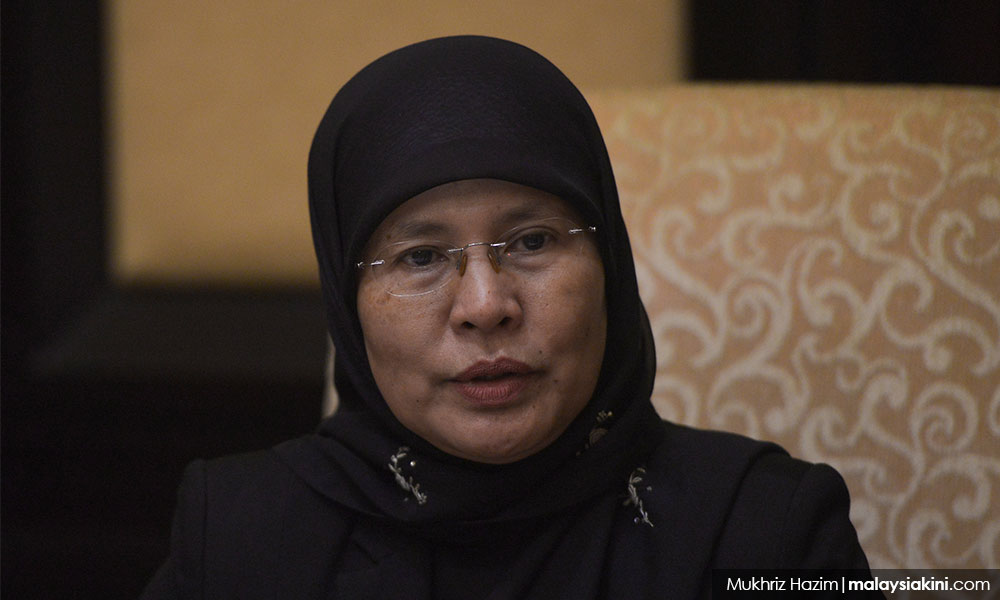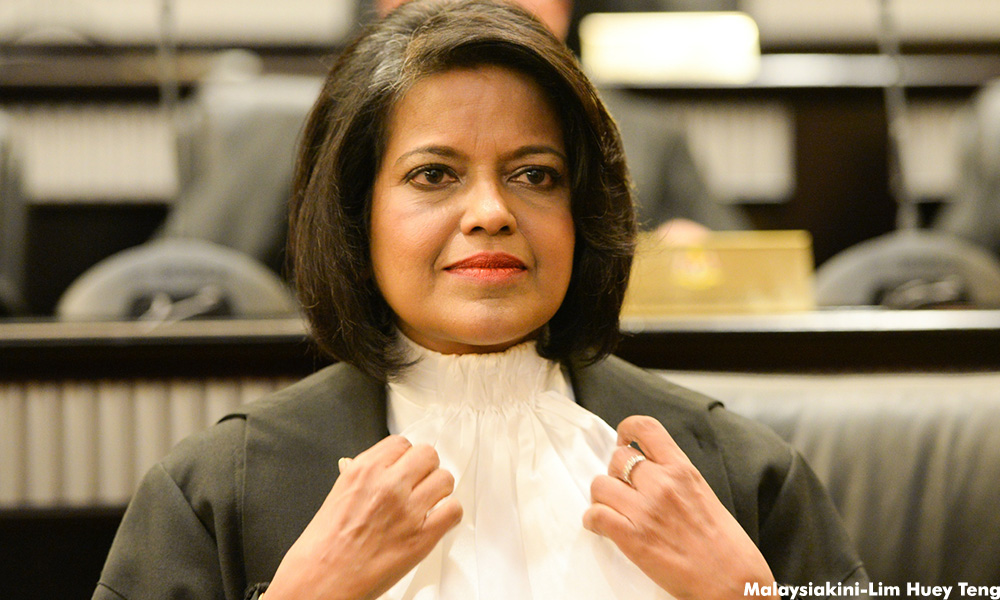Muslim person can’t be made party in non-Muslim marital court dispute: Court
A Muslim individual cannot be included in a legal marital dispute involving a non-Muslim couple, ruled the Federal Court today.
In delivering the 2-1 majority decision, Chief Justice Tengku Maimun Tuan Man dismissed an appeal by a British national to include a Muslim woman as a party in her judicial separation petition against her former husband, an Australian national. The petition was filed at the Kuala Lumpur High Court.
The British national was appealing against a Court of Appeal ruling which removed the Muslim woman from the judicial separation petition, on grounds that Section 3(3) of the Law Reform (Marriage and Divorce) Act (LRA), does not apply to Muslims.
LRA governs non-Muslim marriage and divorce in Malaysia, and Section 3(3) of the Act states that the Act “shall not apply to a Muslim”.
The British national sought to include the Muslim woman in the judicial separation petition on grounds that the latter allegedly caused the breakdown of the former’s non-Muslim marriage to the Australian national.
Maimun and fellow bench member Mohd Zawawi Salleh make up the majority ruling which dismissed the appeal today, while the remaining bench member, P Nallini, took a dissenting judgment to allow the appeal.
In reading the majority ruling today, Maimun said that Parliament made it clear when it legislated LRA that the Act shall not apply to Muslims.
She said this interpretation of the LRA provision is in line with the concept of separation of jurisdiction between the civil courts and Syariah Courts in relation to dealing with marital disputes for non-Muslims and Muslims respectively.
In Malaysia, Syariah Courts deal with marriage and divorce matters involving Muslims while the civil courts have jurisdiction over non-Muslims' marriage and divorce proceedings.
She cited Article 121(1A) of the Federal Constitution which states that the civil courts in Malaysia shall have no jurisdiction over matters within the purview of the Syariah Courts.
She noted that the LRA only applies exception in situations where a formerly non-Muslim spouse in a civil marriage converts to Islam and the other non-Muslim spouse files petition under the act.
In Malaysia, civil courts would still have jurisdiction in divorce matters involving a Muslim, where the non-Muslim couple got married before one of the spouses converted to Islam.

Maimun made reference to the phrase “this Act shall not apply to a Muslim” in Section 3(3) of the LRA.
“In my judgment, the words ‘this Act shall not apply to a Muslim’ in the first part excludes a Muslim in toto from the application of the LRA and it should not be interpreted to mean that it refers to a Muslim who is married under Islamic law, as marriage under Islamic law is covered under the second part of Section 3(3).
"Further, Parliament does not legislate in vain by inserting the word ‘or’ if its intention in enacting Section 3(3) of the LRA was not to exclude the application of the provisions of the LRA entirely to Muslims. This word will then be rendered otiose or redundant.
“The plain meaning of the words ‘this Act shall not apply to a Muslim’ admits of no exception. The only exception as seen in the fourth part of Section 3(3) is where a party to the civil marriage has converted to Islam, as stipulated in Section 51 of the LRA,” she said.
Section 3(3) reads: “This Act shall not apply to a Muslim or to any person who is married under Islamic law and no marriage of one of the parties which professes the religion of Islam shall be solemnised or registered under this Act; but nothing herein shall be construed to prevent a court before which a petition for divorce has been made under Section 51 from granting a decree of divorce on the petition of one party to a marriage where the other party has converted to Islam, and such decree shall, notwithstanding any other written law to the contrary, be valid against the party to the marriage who has so converted to Islam."

Judge P Nallini delivered a dissenting judgment during today’s proceedings before the three-person apex court bench.
Today’s proceedings is over an appeal by a female British national living here, who due to an existing court ruling can only be known as AJS. The 2-1 majority apex decision dismissed AJS's appeal.
Previously, online news portal Free Malaysia Today reported that AJS is appealing against a Court of Appeal verdict on July 6, which held that a Muslim cannot be made a party in a non-Muslim couple’s matrimonial legal dispute.
AJS’ appeal is in relation to her legal bid to include a Muslim woman as a party in the former’s judicial separation petition against an Australian national.
Due to an existing court ruling, the Muslim woman and the Australian national could only be known as JBMH and RIS, respectively.
Through the judicial separation petition filed in July last year, AJS contended that her marriage to RIS broke down due to an affair between the man and JBMH’s.
The Court of Appeal’s verdict itself reversed an earlier High Court ruling which stated that a co-respondent, regardless of his or her faith, could only be named in a divorce petition and not a judicial separation petition.
JBMH had sought to remove her name from the judicial separation petition, on the contention that the LRA does not apply to Muslims.
Intent and purpose
Meanwhile, in a minority ruling which allowed AJS’s appeal, Nallini said that Section 3(3) of the LRA does not preclude a Muslim person from being named as a party in a non-Muslim couple’s marital legal dispute.
She ruled that courts are empowered by Section 17(a) of the Interpretation Act to look at the intent and purpose of a legislation when interpreting a provision, such as the one in LRA.
Nallini noted that the intent and purpose of the LRA, on the whole, is not to apply to marriages between Muslims, but rather marriage between non-Muslims.
She said the phrase “... shall not apply to a Muslim…” in Section 3(3) needs to be interpreted in the context of the purpose and object of the LRA, namely the enforcement of monogamy and providing of statutory framework for marriage and dissolution of non-Muslim marriages.
“That would necessarily include the joinder of the third party in a judicial separation petition, which is primarily a matter of procedural law, where the third party is merely incidental to the primary matter in dispute, namely the dissolution of marriage between two non-Muslims.
"In other words, as neither monogamy nor the statutory framework of the act in relation to a marriage is sought to be imposed on the third party, her joinder does not contravene section 3(3) LRA,” Nallini pointed out.
AJS and JBMh were represented by counsel Ravi Neeko and Kiran Dhaliwal respectively. - Mkini
✍ Credit given to the original owner of this post : ☕ Malaysians Must Know the TRUTH
🌐 Hit This Link To Find Out More On Their Articles...🏄🏻♀️ Enjoy Surfing!




















Post a Comment